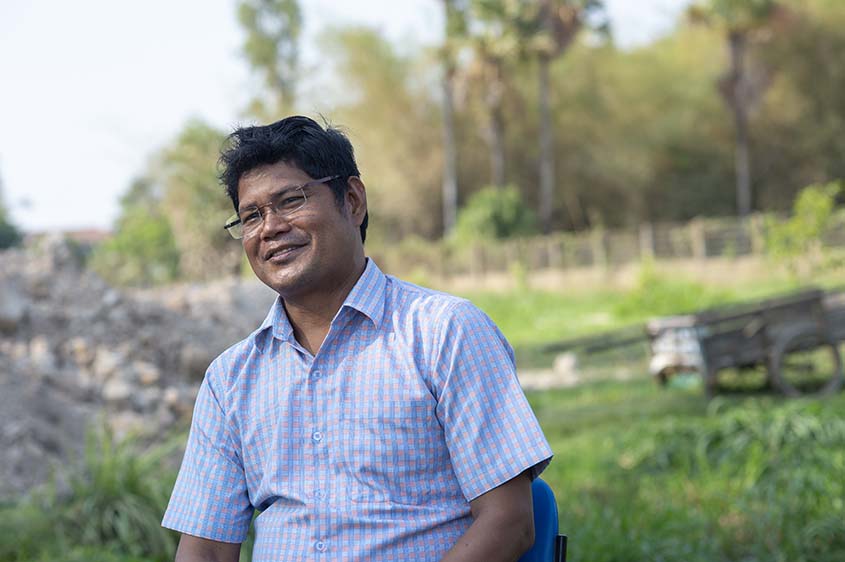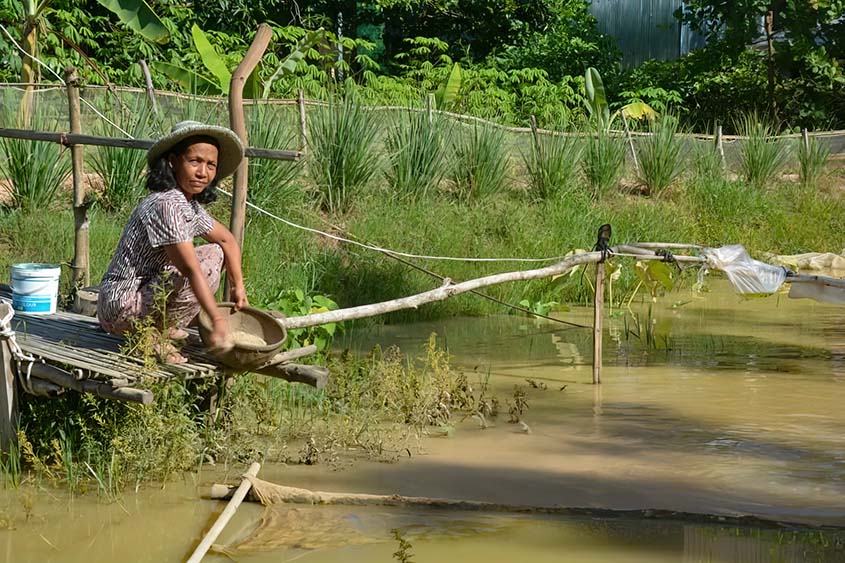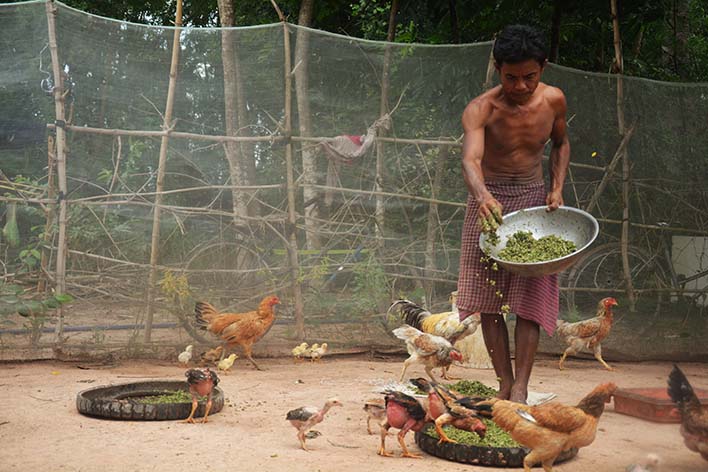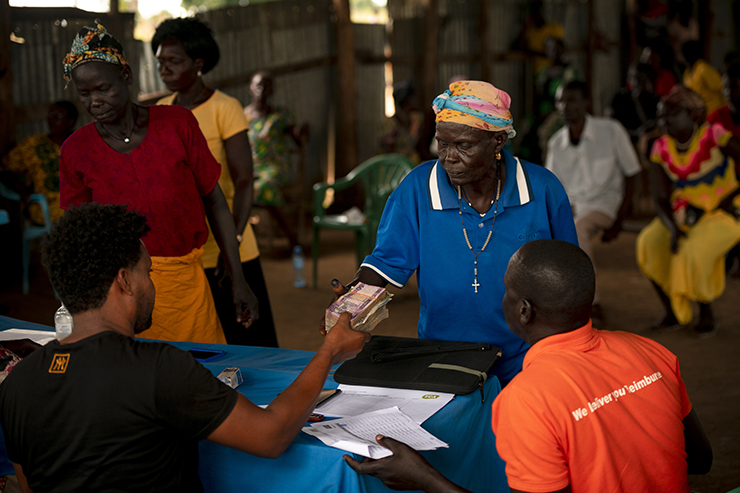Country: Cambodia
Partner/Member: Organization to Develop Our Villages/Mennonite Central Committee Canada
As one of the largest areas in Cambodia dedicated to rice production, Prey Veng province is home to many households reliant on agriculture as their main source of income. However, agricultural success and therefore food security is threatened by the impact of a changing climate, low price in agriculture products, low agriculture yields and migration.
That’s where Organization to Develop our Villages (ODOV) comes in. A local Cambodian NGO, its mission focuses on enhancing food security through developing agriculture and business, increasing the well-being of the environment, and promoting peace and justice so that the Cambodian people may improve their quality of life.
“Some farmers just say, ‘I cannot do, I cannot do’ because of different reasons,” says Tes Sopheat, ODOV executive director. “We ask them to start with a little first. They start with a little, they get the benefit, they see the results, and you motivate them to expand.”

Tes Sopheat, executive director of Organization to Develop our Villages (ODOV).
For more than 15 years, ODOV has received support from Canadian Foodgrains Bank member Mennonite Central Committee Canada (MCC) to implement integrated community development projects in Prey Veng. While MCC staff in Prey Veng directly implemented agriculture projects in the 90s, today the work is run entirely by ODOV.
Their current five-year agriculture and livelihoods project is serving approximately 12,445 people living in Mesang, Kampong Trabaek, Baphnom and Peam Chor Districts. All of these districts have high poverty rates compared with other districts in the province. This initiative builds on previous projects ODOV has implemented through MCC in partnership with the Foodgrains Bank.

Sun Yann, a subsistence farmer in rural Mesang district, feeds fish in a fishpond behind her house. The fishpond was designed and built through a project conducted by MCC partner Organization to Develop our Villages and funded through MCC’s account at the Canadian Foodgrains Bank (CFGB). The fishpond is part of a climate change adaptive cyclical farming model and, in addition to enhanced income, provides reliable water access for vegetable gardening during the dry season. MCC supports ODOV with personnel capacity building, SALT/YAMEN secondments, and funding.
In previous phases of the project, ODOV focused on training small-scale farmers in 51 villages within these districts. In this current phase, ODOV is continuing to support these farmers, with the addition of farmers in another 39 villages.
The five-year project was designed in response to the community’s vision for its local food system, and to assist the community in leading and achieving self-management of its vision. Through ODOV, more than 5,700 vulnerable households are receiving agricultural training to improve their access to food. ODOV is also working to engage women in community decision making because existing gender imbalances make it more difficult for women to succeed in agriculture.
Through it all, ODOV is focused on helping “farmers to help themselves, not just depend on outside support,” says Sopheat.
This is why we’re grateful to partner with them on our mission to end hunger.
This article was published in the winter 2022 edition of Breaking Bread.




